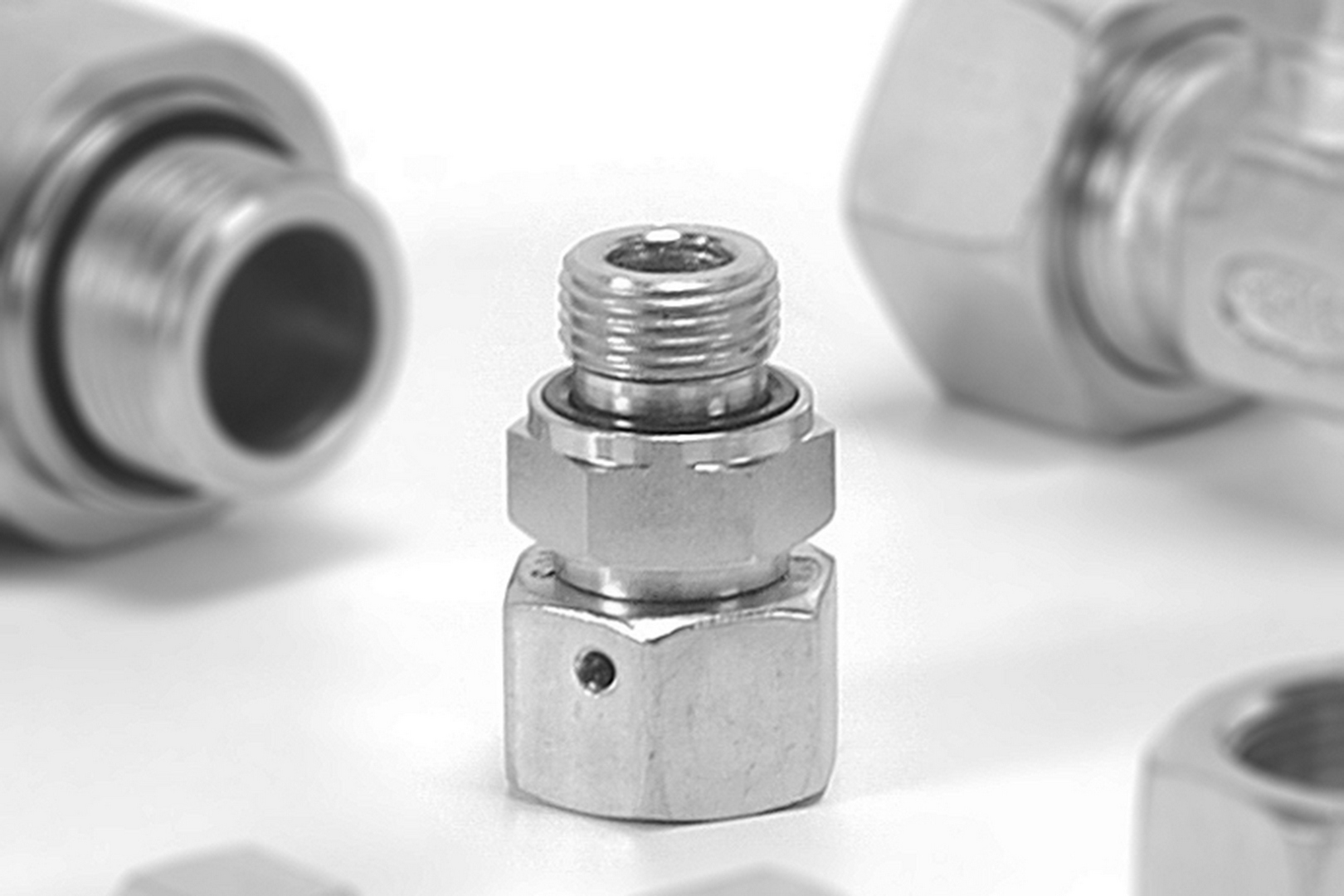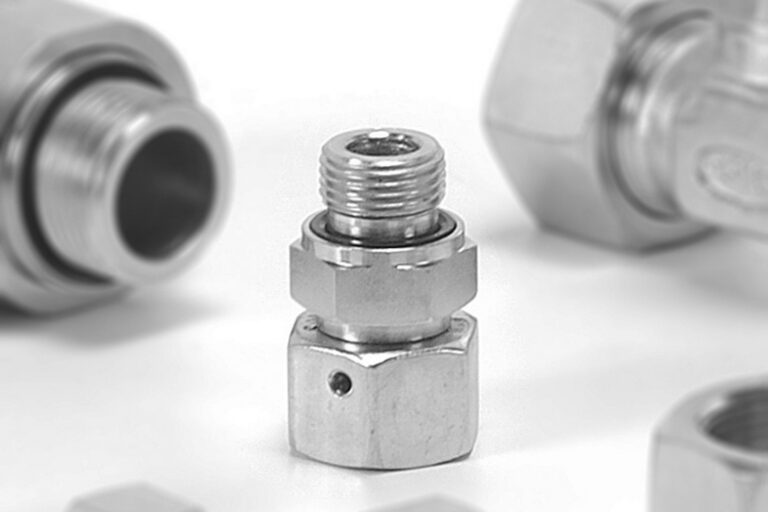
The company manufactures high-quality tube couplings, adaptors, pipe flanges, diagnostic couplings, and allied control valves under the brand name Hyloc for more than 47 years.



Hyloc make Soft seal hydraulic tube fittings offers several advantages in hydraulic systems. These fittings incorporate a soft sealing material, typically an elastomer or rubber, to create a leak-tight connection between hydraulic components.
Hyloc strongly recommends using stud ends having Elastomeric seals and or O rings and for swivel fittings with O rings.
Here are some advantages of using soft seal hydraulic tube fittings and hyloc recommends to use in all hydraulic systems.
Safety: The reliable sealing provided by soft seal fittings contributes to the overall safety of hydraulic equipment and entire systems by minimizing the risk of fluid leaks, which can lead to equipment damage, environmental hazards, and potential safety hazards for personnel.
Leak Prevention: The primary advantage of soft seal fittings is their excellent leak prevention capability. The soft seal material provides a tight and reliable seal between the fittings, preventing hydraulic fluid from leaking out and contaminants from entering the system. This helps maintain system integrity and efficiency.
Vibration Dampening: Soft seal fittings can absorb and dampen vibrations that occur within hydraulic systems. This is particularly important in applications where machinery and equipment are subject to vibrations, as it reduces wear and tear on components and helps prolong the lifespan of the system.
Easy Installation: Soft seal fittings are relatively easy to install compared to some other types of fittings. The elastomeric seal allows for easier alignment and insertion of tubes, which can streamline the installation process and reduce the likelihood of damaging components during assembly.
Flexibility: Elastomeric materials used in soft seal fittings have some inherent flexibility. This flexibility allows for a certain degree of movement and misalignment between components, making them suitable for applications where slight shifts or movements might occur.
Chemical Resistance: Soft seal materials can be selected to resist specific chemicals and fluids commonly found in hydraulic systems. This helps prevent degradation of the sealing material and ensures a longer service life in environments where exposure to corrosive substances is a concern.
Temperature and Pressure Resistance: Soft seal hydraulic fittings are often designed to withstand a wide range of temperatures and pressures. They can maintain their sealing performance even in demanding operating conditions, making them versatile for various applications.
Cost-Effectiveness: Soft seal fittings are generally more cost-effective than some alternative sealing methods. Their simpler design and ease of installation can contribute to lower overall system costs.
Reduced System Complexity: Soft seal fittings can eliminate the need for additional sealing components such as copper washers, additional sealants or gaskets. This can help reduce system complexity and minimize the number of parts that need to be maintained and replaced.
Minimized Friction: Soft seal fittings can help reduce friction between components, which can be advantageous in applications where efficient fluid flow is critical. Reduced friction can contribute to improved overall system performance and energy efficiency.
Compatibility: Soft seal fittings can be used with a variety of tube materials, such as steel and stainless steel, making them compatible with different types of hydraulic systems.
Industry Standardization: Soft seal fittings are globally standardized and used in various industries, thanks to their standardized design and compatibility with existing hydraulic systems.
It’s important to note that while soft seal fittings offer numerous advantages, the specific benefits you experience will depend on the application, operating conditions, and the choice of sealing material. Always ensure that the chosen soft seal material is compatible with the hydraulic fluid and operating environment to achieve optimal performance and durability.
“Take the first step and make it happen!” For any help and query email us to sales@hyloc.co.in
Call Now: +91 9686059806

The company manufactures high-quality tube couplings, adaptors, pipe flanges, diagnostic couplings, and allied control valves under the brand name Hyloc for more than 47 years.
